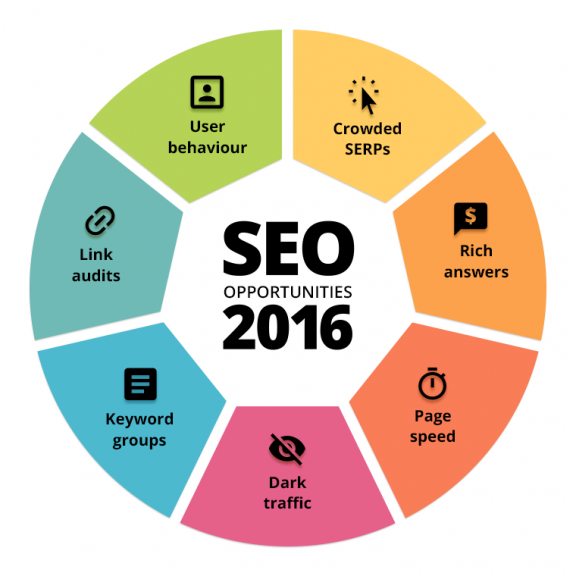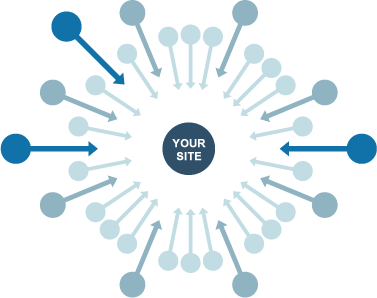The 3 Most Important SEO Tips You Will Read In 2016
What is SEO? Is it about making technical changes to your website? Is it about getting as many backlinks as you can, regardless of the source? Is it about filling your page with a keyword in the hope that Google gives preference to your page over a competitor? SEO is about none of these things.
It is actually much simpler than this: SEO is about satisfying the intent of a searcher. This is a very important principle to grasp as it goes to the heart of the Google business model. When everything else is said it done, Google doesn’t care about your business. It doesn’t even care if you have a better product or service to offer than your competitors. All that matters to it is search intent.
In the ideal world it wants a user to enter a search query and get the answer from the first result.
You should therefore stop thinking about what you can do to make your page more appealing to Google. You should even stop thinking about getting traffic to your website. Instead you should think about satisfying search intent. If you can make your pages do that, you will stick to the top of search results pages, and you will probably get more conversions from your website.
With that in mind, here are the three most important SEO tips you will read in 2016.
Do Keyword Research
How can you understand search intent if you don’t know what your user is searching for? The simple answer is that you can’t. You can guess, but there is no way of knowing unless you actually research the keywords that real people really type into Google.
Let’s say, for example, that you sell shoes. You might want to rank high on Google for the search term “shoes”, but by doing keyword research you might find that “women’s shoes” or “women’s boots” or “pink high heels” are keywords that would be better to target.
When doing keyword research you are trying to find keywords, obviously, but you should also be trying to find out how people look for your products or services? What keywords do they use at various points on the buying cycle? What language nuances or phraseology do they use?
Finally, remember to stay on topic. In other words, don’t try to rank for the keyword “shoes” if your website sells socks, as you won’t get very far.
Create Great Content
Armed with your keyword research you can now start creating fantastic content. You won’t be able to write content for every keyword on your list initially though, so prioritise those keywords that indicate the searcher is looking to buy something. Secondly target keywords that indicate the searcher is looking for a solution to their problem (i.e. is further away from a buying decision, but still possibly in the buying cycle). Leave keywords to last that indicate that the searcher is looking for information, as they may not be on a buying journey at all.
So, now you know the keywords that people are really using in Google, and you have prioritised those keywords that have the most potential for profit. Now you write a good sales pitch for each keyword, right?
Maybe, but usually the answer to that question is no. Remember you have to answer search intent – that is what your content should do.
Finally, never, ever, bait the user with headlines or links that promise certain content but that doesn’t deliver. This does not properly address search intent so is likely to see you fall in Google rankings.
Get Links
Now we are at one of the most misunderstood, exploited, and potentially damaging areas of SEO – links. The old way of doing this was to get as many links as possible from anywhere (usually machines) so you had more links than a competitor. The Google algorithm is much more sophisticated than this, though. It may have worked in the past, but not now.
What should you do then?
We are going to come back to search intent again. You have to complete the two steps above:
- You’ve found out what real people are searching for
- You have created fantastic content that answers their queries
But how does Google know? The answer is links. Google looks at them as being like votes of confidence. Google is, after all, a machine, so it takes votes of confidence from real people seriously.
Take these two examples:
- 1,000 votes (links) from sources it doesn’t know or can’t verify to a particular page
- 10 votes (links) from sources it is familiar with and trusts
It’s about quality not quantity.
Nobody really understands how the Google algorithm works except for a few people in Google, but it is likely that the search engine will rank the second example higher.
This means you should forget about building up huge amounts of backlinks without any consideration of where those links are coming from.
What should you do instead? You should engage in old fashioned relationship building and marketing. This involves developing relationships with people who can give you links (bloggers, others in your industry, journalists, etc) and then telling them about your content. Ask them to share it: if you have genuinely delivered on the first two tips in this article they will be happy to do so.
It is not easy, and why should it be? Remember back to the start of this article – all Google cares about is answering their searchers’ queries as quickly and as comprehensively as possible. It is under no obligation to show your content, so you have to work hard to demonstrate that it delivers for the Google searcher and, by extension, Google.
SEO Summary
When you are looking at your SEO strategy you should think about achieving a situation that is a win-win for everyone involved:
- You
- Your website visitor
If you think like this you will have much more chance of success, and you will have a foundation to start making tweaks and advanced technical changes to your SEO strategy to get even more from it. You need these three building blocks first, though, so start with them.





